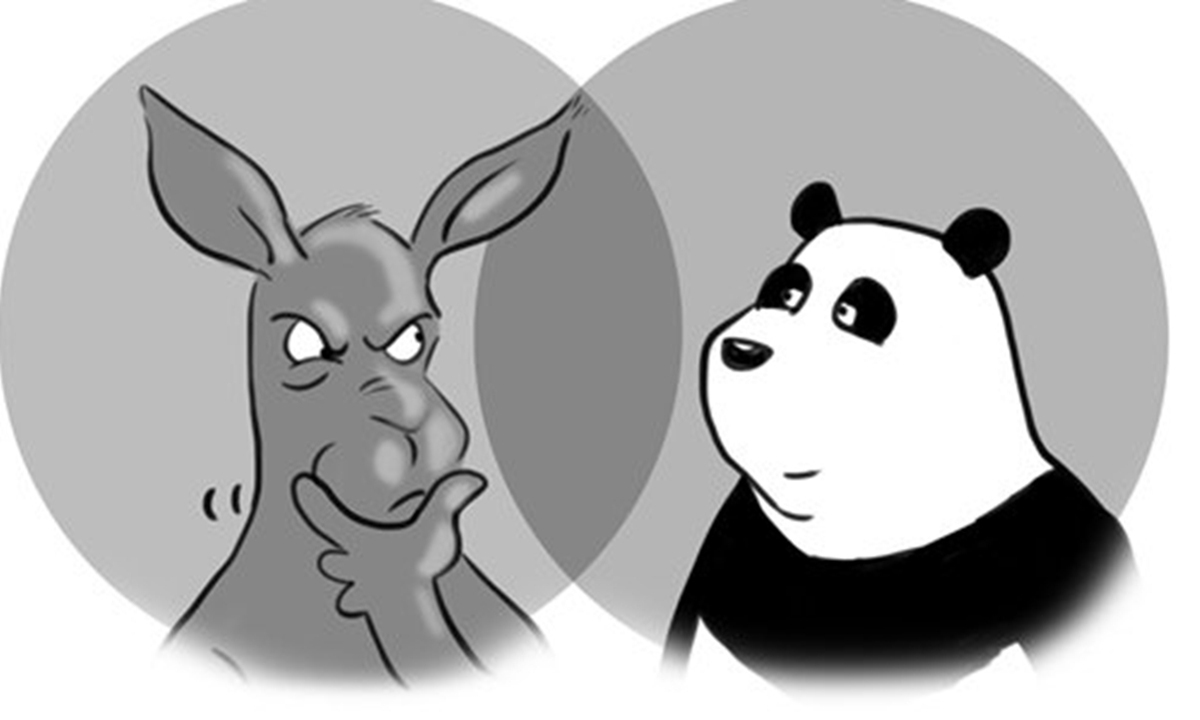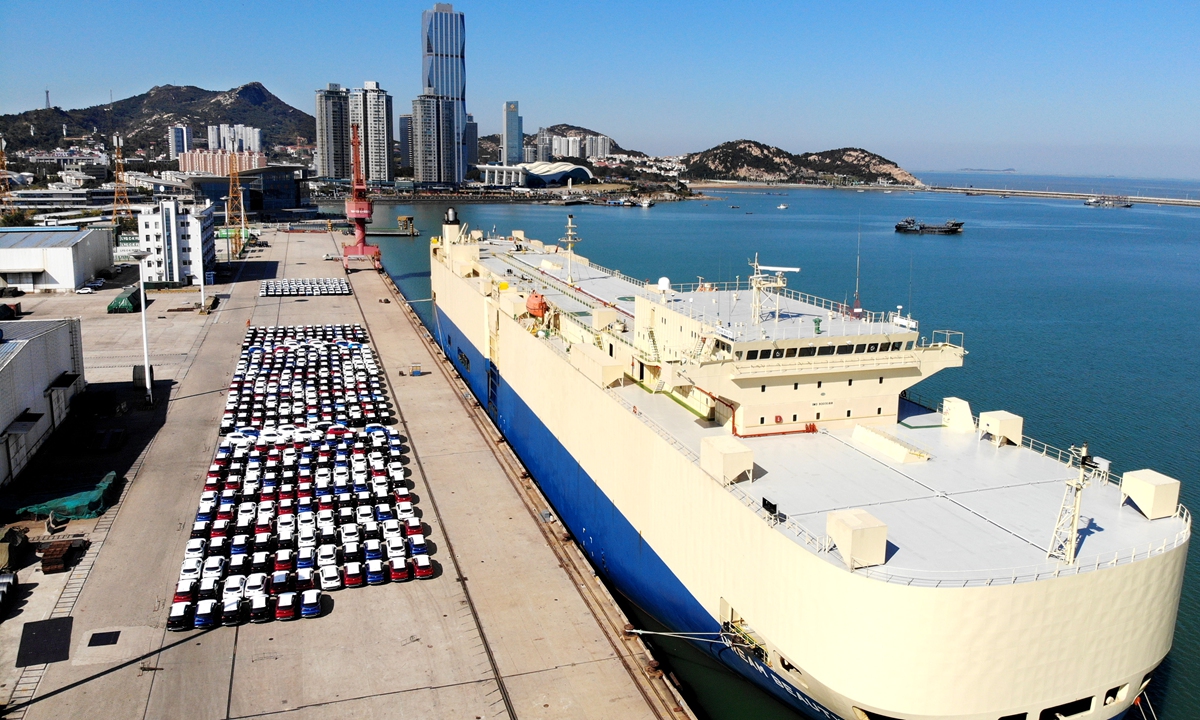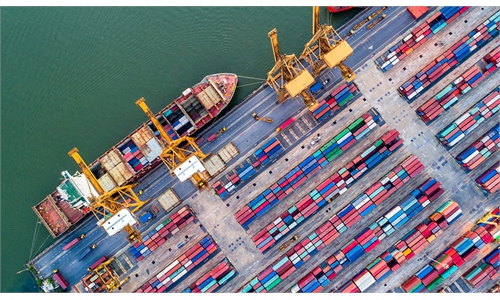SOURCE / MARKETS
Australian ‘boycott’ of Chinese products unlikely to happen: experts

China Australia Illustration: Liu Rui/GT
Australian politician Pauline Hanson has called for Australians to boycott products made by factories in the Chinese mainland, but it probably won't happen as it will be hard for the country to replace Chinese products, experts and Australian residents told the Global Times.
This is not to say that Australia is totally incapable of making the goods itself or finding other countries from which to import them, but China's supply chains are so imbedded in the country that would be very hard and inconvenient to replace them.
For years, China has been supplying Australia with goods ranging from cushions, toys and computers to furniture and mattresses. In the first 10 months this year, Australia imported about $42 billion worth of goods from China, about 15 percent of Australia's total imports, data from China's General Administration of Customs showed.
"Products originating in China are very easy to find in Australian stores," said Australian native David James. "The most popular Chinese goods in Australia are fast-moving consumer goods such as packaged goods, household items and footwear," he told the Global Times on Thursday.
According to James, most of the daily products he purchases in Australia are made in China. "The good thing about these products is that they are cheap and always available," he said.
Chen Hong, a professor at the East China Normal University, also said that Chinese products have now established themselves as not just cheap but also trustworthy in quality, from day-to-day goods to more sophisticated high-end electronic appliances and even cars.
"Now, Chinese manufactured goods are as ubiquitous as Chinese restaurants in Australia. It is hard to say which products are the most popular, but it is not an exaggeration to say that Chinese products are a reliable, integral part of life for Australians," Chen told the Global Times on Thursday.
Hao Yan, a training specialist with the Association of Chartered Certified Accountants who has lived in Sydney for more than 10 years, also told the Global Times that almost all of the electric appliances sold in Australia are made in China, although there are not many Chinese brands on the market.
However, the tensions in the two countries' political relations are increasingly casting a shadow on their trade relations. Australian politician Pauline Hanson recently proposed a boycott on Chinese goods this Christmas, as a response to China's "recent economic attacks against Australia."
The interviewees approached by the Global Times weren't too concerned about Hansen's words, as they said Chinese goods' advantages can't be replaced easily.
"Of course Pauline Hanson's boycott won't be possible, because of the availability, quality and price competitiveness [of Chinese goods]," Chen said.
There are other countries like India and Vietnam that Australia could turn to, Chen said, but China is the main manufacturing and assembly location of many international brands like Apple. "To reject Chinese products is an immature and juvenile gesture, which won't achieve anything but the self-defeating loss of Australia's most important trade partner," he said.
James also said that Australia's large supermarkets like Coles rely heavily on Chinese supply chains, and it would be very hard for them to find alternative supply chains if the government turns its back on Chinese goods.

Cars awaiting export to Australia are seen in Port of Lianyungang, East China's Jiangsu Province on October 24. Photos: VCG
Besides, he said China has a "much stronger" manufacturing base than many other Asian countries, and boycotting Chinese goods would make things more expensive for local consumers.
Yu Lei, a professor at the Center for Pacific Islands Studies under Liaocheng University, thought that at least for low-end products, Australia can't produce them on its own as the cost would be much higher compared with imports from China.
"With a downward economic trend, incomes are dropping in Australia, and the chances of bulky commodities seeing prices rebound to 2013 levels are very small. Besides, they lack the kind of industrial chains that China has to produce all the daily products," Yu told the Global Times.
Based on Chinese customs data, China's exports to Australia have climbed recently. In October, China exported about $5.2 billion products to Australia, compared with $4.82 billion in September.
A merchant who oversees container dispatches in the coastal city of Ningbo in East China's Zhejiang Province said there has been a small decline in cargo bound for Australia this year.
But he said the decline was because of a shortage of shipping capacity and containers, which is a byproduct of the pandemic.
"It's for the trading companies, such as importers, to dictate what shopping choices consumers can have, not the politicians. And merchants follow profit, regardless of the calls from politicians," he told the Global Times.
Experts also said that the damage would be worse for Australia than China if economic relations between the two countries were to break down completely because of political tensions.
According to Chen, the economic aftermath could be "disastrous" for Australia as an export intensive economy, because it would negatively affect Australia's exports to China should Hanson's proposal be adopted.
"It is unthinkable that in Australia, a country that is heavily reliant on open and free trade, there could be such incongruous voices. In a sense, Hanson is promoting a trade war with China, which is an alarming signal of the possibility that Canberra might further weaponise trade for political gains," he said.
A recent article in The Conversation by professor of economics Rod Tyers with the University of Western Australia Winthrop and senior lecturer in economics Yixiao Zhou from the Australian National University noted that the loss of Chinese exports to Australia would be catastrophic for Australia, but would be a "mosquito bite by comparison" for China, if deteriorating diplomatic relations bring an end to trade between the two countries.



